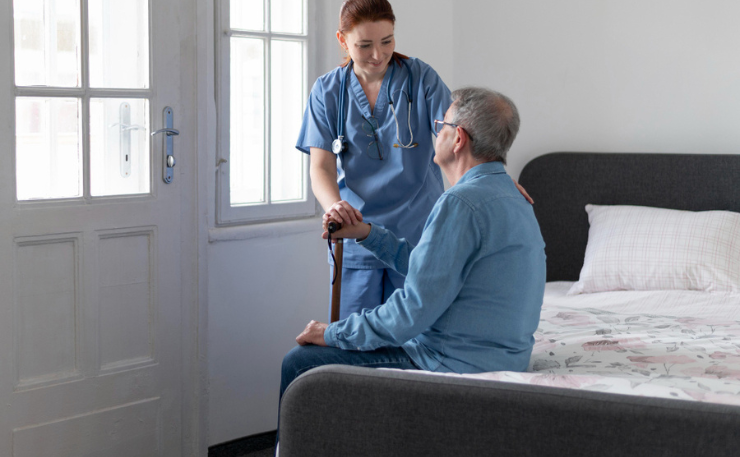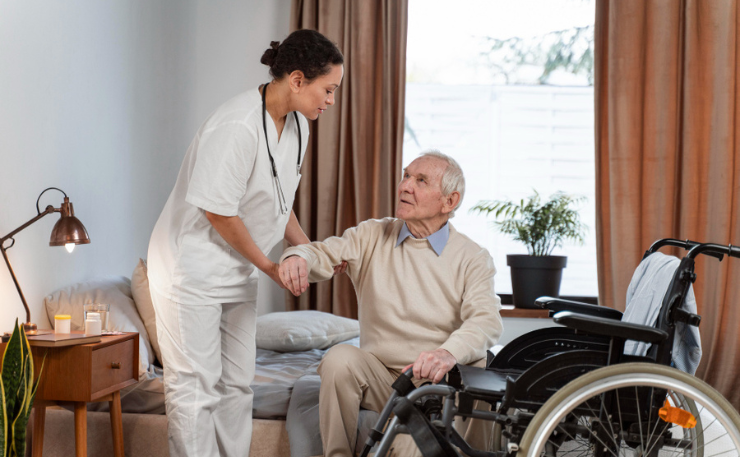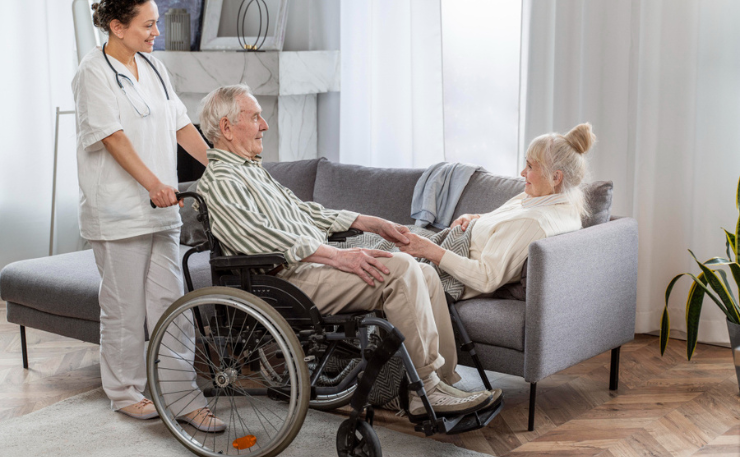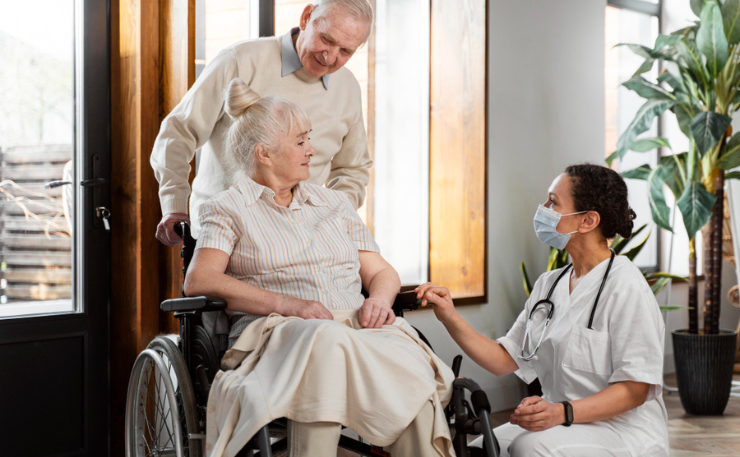As our loved ones grow older, it can sometimes be difficult to know when they need extra help at home. Recognizing the signs that professional home care is needed can make a huge difference in their safety, comfort, and overall well-being.
From managing health conditions to providing daily assistance with everyday tasks, professional home care can offer the support they need to live a fulfilling life at home. In this article, we will explore ten signs that it may be time to consider professional home care for your loved one.
What Does Home Care Include?
Home care includes a range of services designed to support individuals in their daily life at home. This can involve personal care like bathing and dressing, health monitoring, medication management, and assistance with mobility.
1. Difficulty with Daily Activities
If your loved one is struggling to complete daily tasks such as bathing, dressing, cooking, or eating, it could be a sign that they need professional help. These activities may have become more difficult due to aging, injury, or illness, and can lead to feelings of frustration or embarrassment. Professional home care can provide assistance with personal care and daily activities, for your loved one’s dignity is maintained while helping them stay as independent as possible.
2. Frequent Falls or Risk of Falling
Frequent falls or a noticeable fear of falling is a common sign that your loved one may need professional assistance. Falls can lead to serious injuries, including fractures, concussions, or even long-term disability.
If your loved one is frequently unsteady on their feet or has experienced falls, it may indicate they need additional support in the home. A professional caregiver service can help your loved one navigate their home more safely because the environment is free of hazards like clutter or poor lighting.
3. Unexplained Weight Loss
Unexplained weight loss can be a concerning sign that your loved one may need professional care. It could be caused by a variety of factors, such as difficulty preparing meals, swallowing problems, or underlying health conditions. Experts can help when your loved one receives proper nutrition by preparing meals, offering reminders to eat, and monitoring their eating habits.
4. Memory Loss or Confusion
Memory loss, confusion, or difficulty remembering appointments or taking medications are common signs that your loved one might need professional care. Cognitive decline, such as forgetfulness or confusion about time or place, is common as people age.
If these issues become more frequent or severe, it could indicate the need for extra support. A skilled guardian can assist your loved one in staying organized, helping them with medication reminders, scheduling appointments, and where they remain safe.
5. Chronic Health Conditions
Chronic health conditions like diabetes, heart disease, arthritis, or respiratory issues require constant management. If your loved one’s condition is becoming harder to manage on their own, or they are struggling to keep up with medical appointments, medications, and treatments, it may be time to consider professional home care.
6. Difficulty Managing Medications
Forgetting to take medications or taking them incorrectly can lead to serious health risks. If your loved one is struggling to keep track of their medications or is taking them at the wrong times, it may be a sign that they need professional care. This can be especially concerning if they are on multiple medications or have complex health needs.
7. Isolation and Loneliness
Isolation and loneliness can have a significant negative impact on your loved one’s mental and physical health. If they are withdrawing from social activities or expressing feelings of loneliness, it may be time to consider professional care. Loneliness can lead to depression, anxiety, and a decline in overall well-being. Experts also provide emotional support and help your loved one feel more connected and supported in their daily lives.
8. Unsafe Living Environment
An unsafe living environment is another sign that your loved one may need professional home care. This could be due to clutter, poor lighting, or a lack of necessary mobility aids. An unsafe home environment can increase the risk of falls, injuries, or accidents, which can severely affect your loved one’s health. Professional people for guidance also help with daily tasks that may be too dangerous for your loved one to do alone, reducing their risk of accidents at home.
9. Increased Need for Medical Attention
An increased need for medical attention, such as frequent doctor’s visits or hospitalizations, can signal that your loved one may require more care. This could be due to an ongoing illness, recovery from surgery, or a general decline in their health.
If your loved one is struggling to manage their health on their own, professional home care may be the right solution. Professional caretakers monitor their health regularly and help manage symptoms, providing you with peace of mind.
10. Caregiver Burnout
Caring for a loved one can be physically and emotionally exhausting. If you or another family member is feeling overwhelmed, stressed, or burnt out from providing care, it might be time to seek professional help.
Burnout can lead to exhaustion, anxiety, and even illness, affecting both the caregiver and the person they are caring for. Bringing in a professional caregiver can help ease the burden, allowing family members to take breaks and focus on their own health.
Conclusion
Recognizing the signs that your loved one may need professional home care is crucial for their well-being and safety. Whether it’s difficulty with daily tasks, health concerns, or emotional challenges, professional care can provide the support and assistance they need to maintain their independence and quality of life at home.
FAQs
1. How can I tell if my loved one needs help with daily activities?
A: If your loved one is struggling with daily tasks like bathing, dressing, eating, or moving around, it might be a sign that they need professional help. Home care can assist with these activities and for which they remain safe and comfortable at home.
2. What health issues indicate the need for professional care?
A: If your loved one is managing a chronic condition, recovering from surgery, or experiencing frequent health issues like memory loss, it’s important to seek professional care. Trained people can monitor their health, assist with medication, and provide essential care.
3. Can professional home care help with mental health concerns?
A: Professional home care providers are trained to support individuals with mental health conditions like anxiety, depression, or dementia. They can provide emotional support, help with mental stimulation, and offer companionship, which is crucial for mental well-being.
4. Is home care only for elderly individuals?
A: Home care is not just for the elderly. It is for anyone who needs extra support at home due to illness, injury, disability, or age-related conditions. Home care services can be tailored to meet the needs of individuals of all ages.




